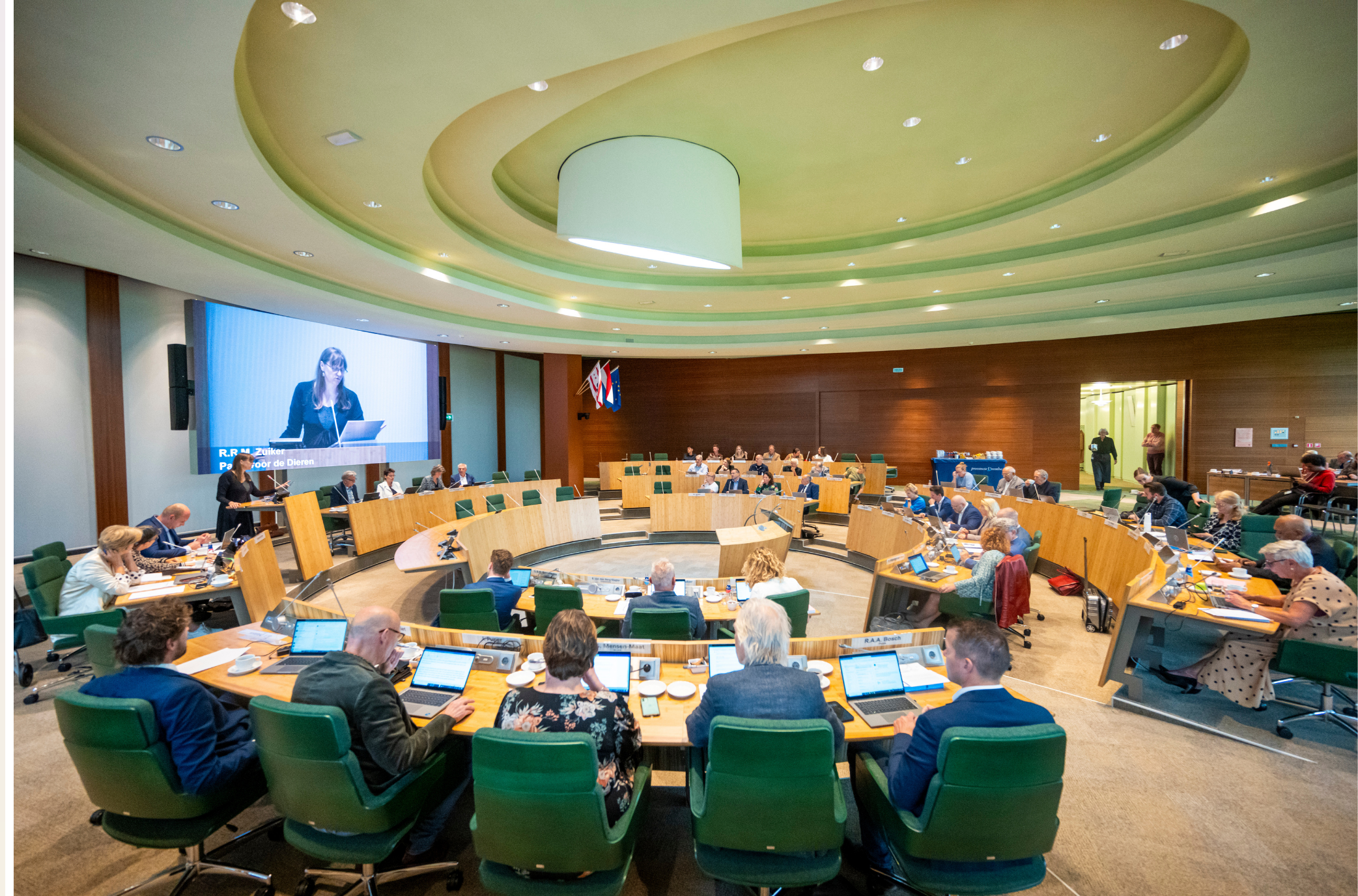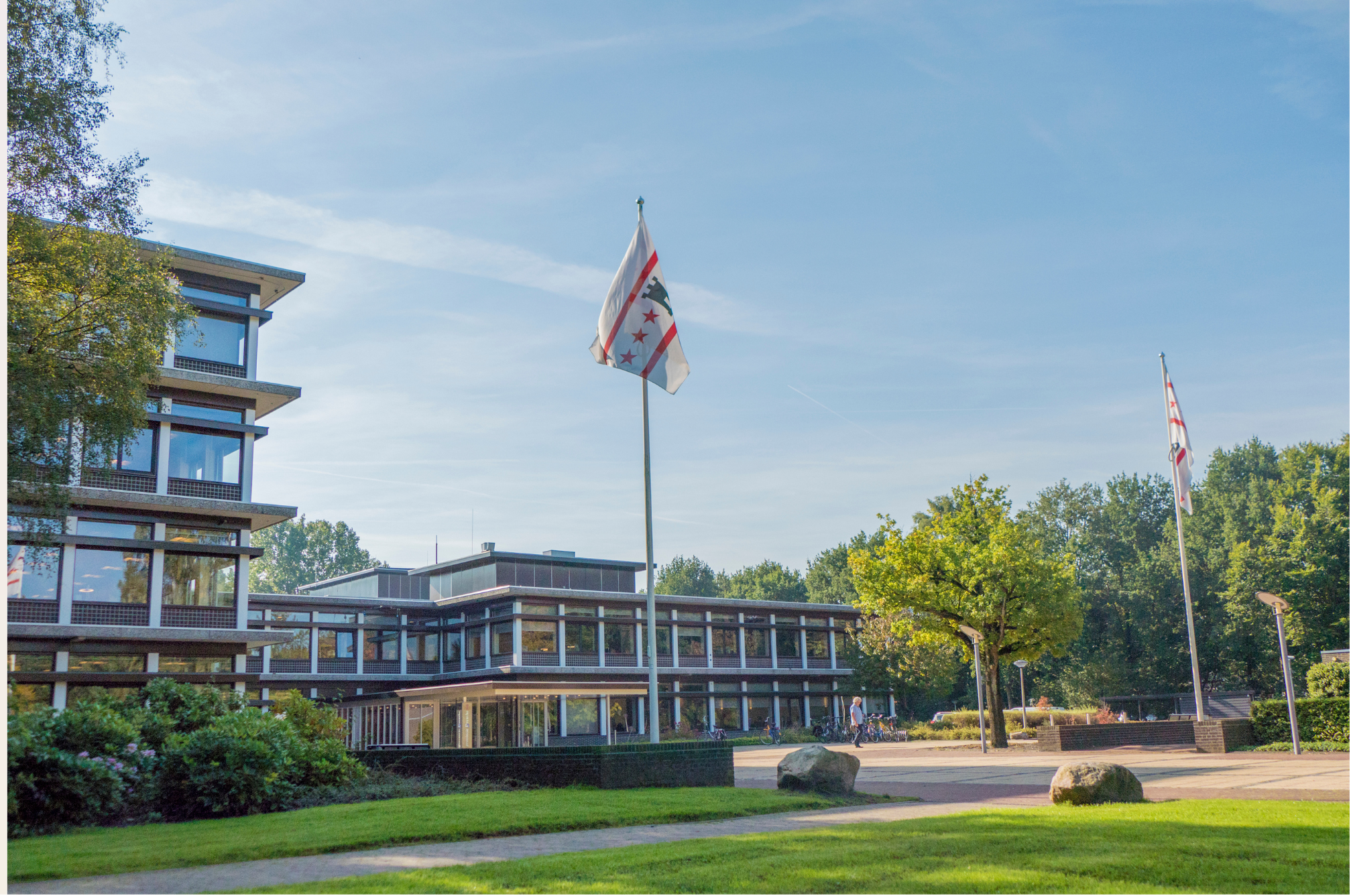In this interview, we speak with representatives from the Province of Drenthe. Anne de Zeeuw, Emma Jasperse, and Christiaan Teule shed light on their roles and aspirations within the organization. They focus on bridging the gap between their regional government and citizens, emphasizing the importance of informed decision-making and participatory governance initiatives. Their involvement in the Speak Up project fits in with their commitment to promote citizen engagement through initiatives such as their citizen assembly.
Can you tell us something about yourself and your organization?
Drenthe is a province in the Northern Netherlands. Drenthe is bordered by the province of Groningen to the north, the German state of Lower Saxony to the east, the province of Overijssel to the south, and the province of Friesland to the west. The Province of Drenthe is deeply committed to inclusive governance initiatives. With a population of over 500,000 inhabitants, Drenthe has a blend of urban and rural areas, including cities like Assen, Emmen, Hoogeveen, and Meppel, alongside rural landscapes and prehistoric megalithic structures (Hunnebedden).
Emma and Anne work as researchers for the Province of Drenthe. They are part of the Griffie, which supports the Provincial Council. Their primary responsibility is to ensure that accurate information reaches the Provincial Council, enabling informed decision-making. They conduct various research activities, including organizing citizens' assemblies and collaborating with external partners on different projects.
Christiaan works as the project leader for participation policy at the Province of Drenthe. With a background in the energy sector, he has experience in engaging citizens in shaping governance practices. His previous work involved supporting local energy initiatives and facilitating policy processes with various stakeholders. In his current role, Christiaan focuses on embedding participation policies into the organizational culture of the province.

What inspired your organization to join the Speak Up project and what do you want to achieve through your participation in this project?
We want to explore better communication and connections, especially between the government and citizens. Instead of only sharing our agenda, we want to understand better what citizens truly care about and actively involve this information into our plans. One of our initiatives is "Verbindend Besturen’’ (Connected Governance), which is aimed at fostering better connections between policymakers and citizens, both internally and externally. This initiative aligns with their overarching goal of promoting inclusive governance principles.
Furthermore, we have been working on various participation projects, and one big question for us is how to integrate these activities into our organization effectively. How do we make sure that every department is on the same page and values citizen engagement in their initiatives? Last September we started the process towards our participation policy in which we will try to tackle this problem. How to integrate participation within the organization is a question that we share with other Speak-up partners. Together with them we will explore this problem within the project.
We have been involved in various projects over the years. Speak Up combines our goals of creating citizen engagement initiatives and further developing the internal organization. What is special about this process is that the politicians of the Provincial Council are also involved in their role as elected representatives of the citizens of Drenthe. This way, we involve all levels of government to reach out to all groups in society.
In addition, this project gives us the chance to collaborate with partners from other countries and to share experiences and learn from each other.
‘’It is important to foster inclusive and accessible dialogues where we create effective connections between government and citizens’’
What are your expectations of participating in the Speak Up project?
We expect that through executing various citizen engagement initiatives, we will learn valuable insights. One example of a practical citizen engagement initiative is our plan to visit various towns and engage in discussions with citizens to understand their perspectives better. The goal here is to identify what promotes or hinders connections, by receiving input from citizens, politicians and our own organization’s departments. We want to understand how connections can be established and what each party requires to create effective connections. We are planning to visit different towns, like Borger and Meppel, to hold meetings with residents. This hands-on approach is essential for the projects we are involved in, because these face-to-face interactions can facilitate meaningful dialogue and understanding. The Speak Up project ensures that we can research various methods and approaches and learn from best practices to ensure that citizen engagement initiatives are successful.
For the participation policy, we want to collaborate with other Speak Up partners to develop best practices for creating and effectively integrating a participation policy in the organization. It is important that participation is embedded into all parts of the organization. Therefore, it is important that we use practical tools to work on capacity building. For example, by creating guidelines, using best practices from Speak Up partners and by providing training opportunities for colleagues.
''we strive to create more face-to-face initiatives''
What is a citizen engagement initiative that your organisation is proud of?
We are particularly proud of our Citizens' Assembly. The Citizens' Assembly focuses primarily on the theme of housing. We did not predetermine sub-topics, as the Citizens’ Assembly itself determined which sub-themes to prioritize and advise on, ensuring a comprehensive approach to addressing community concerns. During the meetings of the Citizens’ Assembly questionnaires were distributed, capturing valuable insights. The enthusiasm for this participation process was remarkable. About 2400 individuals expressed interest in participating from which 150 individuals with diverse backgrounds were randomly selected in a weighted lottery. Also, the broader audience completed a total of 6500 questionnaires about housing. Those opinions were used as an additional source of information for the assembly participants. This shows the broad scope of the Citizens’ Assembly. We want to further develop this initiative through Speak Up, and are evaluating the process and its impact in collaboration with the University of Groningen. In the upcoming weeks we will share more information on this initiative on Speak Up’s platforms!
Furthermore, another citizen engagement initiative we are proud of is the ‘’Drenthe aan zet’’ project, where we actively engaged with citizens in different towns through various dialogue sessions. Due to the fact that we visited citizens in their towns, instead of having them travel to the Provincial Council, the initiative became more accessible and inclusive. Therefore, we strive to create more face-to-face initiatives like this.
On the policy side, Drenthe has been exploring opportunities for youth participation initiatives that are in line with the Omgevingsvisie (Environmental Vision). Plans are underway to involve young people in shaping environmental policies, ensuring their perspectives are integrated into decision-making processes.
Overall, these initiatives underscore Drenthe’s commitment to fostering meaningful citizen engagement and building bridges between communities and policymakers. As these projects unfold, there is a recognition of the need for ongoing evaluation and adaptation to ensure effectiveness and inclusivity.
Could you share any upcoming initiatives or events related to Speak Up that your organization is currently working on?
There are various initiatives in development. The Citizens’ Assembly had its last meeting on June 8 and the final report was submitted to the Provincial Council on July 10. After a year we will organize a meeting with the Citizens’ Assembly participants to update them about the way in which their proposals have been executed or put into policy plans. Now, we will focus on evaluating the outcomes and impact of this initiative. This evaluation process will help to identify areas of success and improvement, which will be used in future initiatives.
Furthermore, we are currently developing a digital participation tool called ‘’Tip de Staten’’ (Advice to the Council). The aim of this tool is to create an accessible way for citizens to provide input and interact with the province. We are excited about this initiative, as it opens up new avenues for engagement beyond traditional methods. Another interesting initiative we are developing is ‘’Wij zijn Drenthe’’ (We are Drenthe), where we host a roadshow podcast where citizens have a conversation with politicians and give input. To do so, we will go to different towns as well, which is part of our idea to create accessible citizen engagement initiatives.
While these projects are still in various stages of development, we are dedicated to promoting inclusive participation and meaningful dialogue. We are excited about future developments within the Speak Up project!

